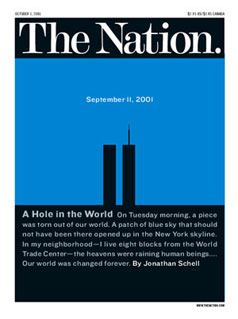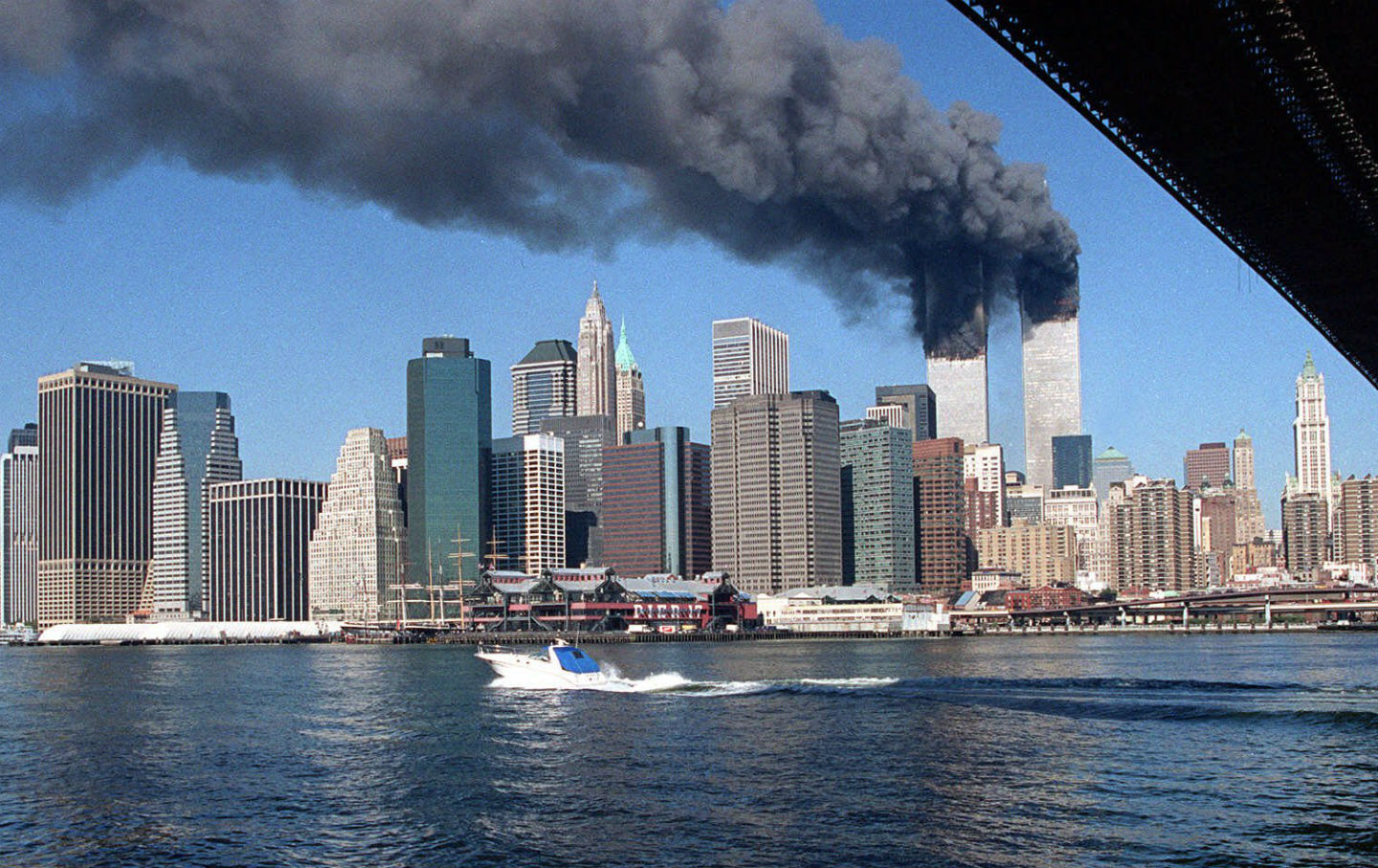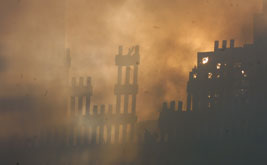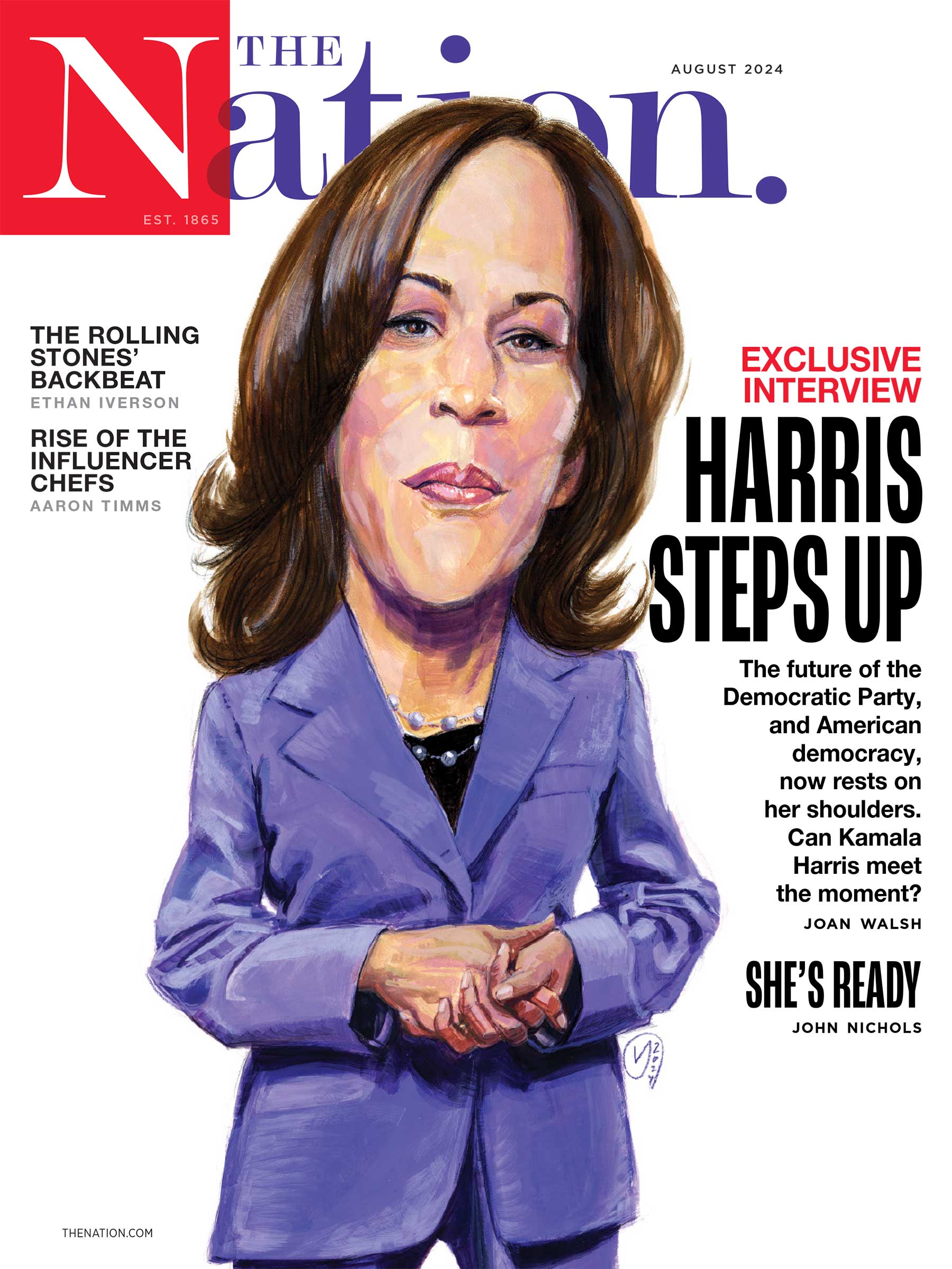ALIEN NATION
New York City
There's only one explanation for your mystifying claim, in the July 23/30 "In Fact..." column, that "the rebates, unlike the broader tax cut plan, are progressive; everyone who pays taxes gets virtually the same amount": Space aliens must have kidnapped the Nation editorial board and replaced it with the editorial board of the Wall Street Journal. True, the tax rebates are marginally less regressive than the rest of the Bush tax cut package. But that certainly doesn't make them anything near progressive. First, the rebates are based on federal income taxes only; therefore, countless low-income Americans who pay significant federal payroll taxes, but not income tax, will receive no rebate.
Second, as has been documented by Citizens for Tax Justice, an additional 51 million low-income Americans who do pay federal income taxes will still receive no rebate or only a small one. Twenty-six percent of taxpayers--34 million--will receive no rebate, while another 13 percent--17 million--will receive a rebate of only about half the amount advertised. Thus, we must protest the tax cuts by donating the funds to progressive groups, particularly those that fight the poverty faced every day by the families not receiving rebates. I also endorse your readers' suggestion of donating the money to The Nation, assuming, of course, that the space aliens have returned your editors.
JOEL BERG
New York City Coalition Against Hunger
The rebates, originally a Democratic idea for dealing with the economic slowdown, give the same $300 to someone with a taxable income of $6,000 as to someone with taxable income of $600,000. That seems pretty progressive to us. We do, however, agree that we shouldn't have said every taxpayer will get virtually the same amount, as there are still many people who fall below the $6,000 level (thanks for providing us with the alien defense). Payroll taxes--which all workers pay to fund Social Security--are separate from income taxes. While justice would indeed lie in giving back some of that money and instead fully funding Social Security by removing the current cap on taxable earnings, at this moment such a proposal would probably only add to the deceitful hype surrounding Social Security privatization.
--The Editors
AND SPEAKING OF REBATES...
Baton Rouge, La.
An hour ago I spent the last of my tax refund check: I got my wife a manicure. I stayed in a mediocre hotel for a couple of nights, bought a couple of CDs on sale and had a great time at a local casino! Wow! It's gone. I could have helped pay for an elderly neighbor's medical expenses, supported the local homeless shelter, bought new books for the school library, but I didn't. I could have done any of the things federal and state governments do for the public good, but like most Americans I didn't. When I think of all the great things our money in aggregate could have accomplished, I feel sick about how I and most Americans trickled away our measly payoff. George W. Bush could have done so many noble and innovative things with these funds--but he didn't.
LEE ROZELLE
STRENGTHENING AMERICA'S FAMILIES
New York City
Judith Stacey, in "Family Values Forever" [July 9], describes me and my colleagues at the Institute for American Values as leaders of a "neo-family values movement" whose philosophy in the 1990s "triumphed over the religious far right, on the one hand, and progressive family politics on the other." And under Bush, Stacey argues, our movement is "prospering" and even "busting out all over."
Stacey's infatuation with our little group goes back years. In 1994, in Social Text, she announced that an institute-led "revisionist campaign for family values has flourished under Democratic skies." Unlike the efforts of "right-wing Republicans and fundamentalist Christians," the institute-led campaign "has an explicitly centrist politics, rhetoric, and ideology. A product of academicians rather than clerics, it grounds its claims in secular social science rather than religious authority, and eschews anti-feminism for a post-feminist family ethic."
In 1997, in Family Relations, Stacey worried at length that "the IAV and its associate organizations have been remarkably successful in attracting favorable media coverage." In 1998, in Footnotes, she fretted, "During the past decade the Institute for American Values has waged a vigorous, influential political campaign for neoconservative 'family values' while successfully representing itself as 'nonpartisan.'" During this time, Stacey and others formed a group called the Council on Contemporary Families, in effect named after the Institute's Council on Families, and intended by their own admission to function as a kind of anti-Council on Families in the public debate.
While I am flattered by this attention, and while I sometimes show Stacey's writings to others in order to demonstrate our group's amazing prowess, the truth is, Stacey is missing the point. As an analyst, her fundamental weakness is the tendency to view the world in conspiratorial terms. In attributing nearly everything that she thinks is wrong with today's family debate to one little group--the members of which most people, except for Judith Stacey and her friends, have never heard of--Stacey is in effect blinding herself to the real causes of contemporary social change, including changes in public opinion about marriage and families.
Besides the fact that we are, in her eyes, too influential, what seems to upset Stacey most is that we are ideologically hard for her to define (thus her shifting and consistently awkward formulations, such as "neo-family values"), since we bring together a very diverse group of scholars and leaders. Also in the July 9 issue, Katha Pollitt brings up again her longstanding complaint that Cornel West, widely viewed as a man of the left, is associated with the institute. Stacey and Pollitt are outraged that some of us won't stay safely put inside the tiny ideological boxes they've constructed for us.
Our most recent public statement, Watch Out for Children: A Mother's Statement to Advertisers, which critiques contemporary commercial advertising, was co-signed by Marian Wright Edelman of the Children's Defense Fund. Edelman was also an original member of the institute's board of directors. Do Stacey and Pollitt want to excommunicate her as well from their constantly shrinking church?
Before founding the institute, I was a Saul Alinsky-inspired community organizer, and before that, a VISTA volunteer. I am a lifelong Democrat. I have never, to the best of my memory, described myself as a "conservative," neo or otherwise, or as in favor of a political campaign called "family values," neo or otherwise. All of those terms are just Stacey calling people names. (Her description of Linda Waite of the University of Chicago, a liberal feminist professor of sociology who favors same-sex marriage, as a "neo-family values author" is so crude as to be comical.)
Regarding the status and future of families, there will always be clashes of opinion on specific issues, but the underlying question for progressives, if I may be so bold, is whether we believe, with Stacey, Pollitt and about two other Americans, that strengthening marriage and family life is almost by definition a bad thing, or whether we think that it might be a good thing, especially for children.
DAVID BLANKENHORN, president
Institute for American Values
STACEY REPLIES
Los Angeles
David Blankenhorn misreads political differences for personal ones. He mistakenly claims that the marriage movement troubles me because I cannot pigeonhole its ideology. On the contrary, I object to the profoundly discriminatory and antidemocratic character of the policies it promotes.
Despite the presence of some well-intentioned individuals, the marriage movement, as my article documented, fosters economic, social and legal discrimination against all single adults as well as cohabiting couples and their children. Blankenhorn, for example, relentlessly extols the personal and social benefits of marriage but never advocates extending these privileges to same-sex couples. He exalts the two-parent family but belittles lesbian co-mother families for committing the sin of "radical fatherlessness." After my Nation article appeared, these political differences took on even greater urgency when the newly formed Alliance for Marriage launched a national campaign for a constitutional amendment to prevent any state from extending the benefits of marriage, or even of civil unions, to same-sex couples.
Far from believing, as Blankenhorn charges, that "strengthening marriage and family life is almost by definition a bad thing," I favor policies that strengthen successful families for everyone, not just for heterosexuals, the affluent or those who are allowed and choose to marry. The marriage movement insists that one size and shape of family fits all and implies that those who do not agree should be content to wear rags or to remain in the closet. In contrast, groups like the Council on Contemporary Families seek to improve the fabric of family relationships for all people without dictating a uniform they have to wear.
JUDITH STACEY
U2, BRUTE?
Denver, Colo.
Salman Rushdie's gushy, giddy paean to U2, "The Ground Beneath My Feet" [July 9], is by far the worst thing I have ever seen in your magazine. It's quite a U-turn for this "edgy" Mohammed-defiler; perhaps a new career as a writer for People magazine will be waiting for him after this piece. Thanks for showing that, yes, liberals can be just as sophisticated in their pop-culture-artifact consumption as, well... the members of any early-nineties fraternity house. U2 sucks.
JONATHAN ARMSTRONG
Berkeley, Calif.
Kudos for publishing Salman Rushdie's reflections on U2. In doing so, you have tapped into that most vital market segment: the 20somethings of America. Within moments of reading the piece, this 25-year-old jumped on his DSL line and alerted a fellow 20-something U2 fan (and Nation reader) in Los Angeles. I expect the e-mail chain to continue.
While I applaud this careful surfing of pop culture, a warning: If you publish a Christopher Hitchens thought piece on the Back Street Boys or Britney Spears, I will cancel my subscription.
SANJEEV BERY
AUTHOR! AUTHOR! SEXY BEAST!
Los Angeles
It's astonishing that so literarily hip a publication as The Nation would publish a rave review (Carl Bromley, "The Limeys") [July 9] of a film (Sexy Beast) without once mentioning the names of the fellows who wrote the script (Louis Mellis and David Scinto). By making the ubiquitous, knuckleheaded error of assuming that the director of the film is per se its author, you join the same criminal class as (I shudder to utter its name) the Los Angeles Times. Is this really the company you want to keep?
MONTE MONTGOMERY
BROMLEY REPLIES
Queens, N.Y.
Monte Montgomery is to be congratulated for unmasking the criminal conspiracy that my comrades and I are involved in. Our organization had created a number of anti-George Bush, nonprofit shakedown operations (all concerned Nation readers should have received our solicitation by now--and, by the way, thanks) as a collective front for our diabolical ambition: To use tax rebate money sent to The Nation to erect a statue of Andrew Sarris, who popularized the auteur theory in America. Our demise, however, means that Montgomery--a screenwriter by trade--and his colleagues will no longer be able to hide behind the defense that the reason the film they wrote stank was the director or the studio.
In my own miserable defense: In my review I describe Sexy Beast as "the heist movie that Harold Pinter never got around to writing." I can't imagine higher praise for the (albeit unnamed) screenwriters.
CARL BROMLEY
SLOW FOOD IN AMERICA
In response to Alexander Stille's cover story on the emerging Slow Food movement in Italy [Aug. 20/27], we've had many requests for information on how to contact the movement on these shores. Here are its coordinates. Phone: (212) 988-5146; e-mail: [email protected]; web: www.slowfood.com.
Read More
Our Readers








